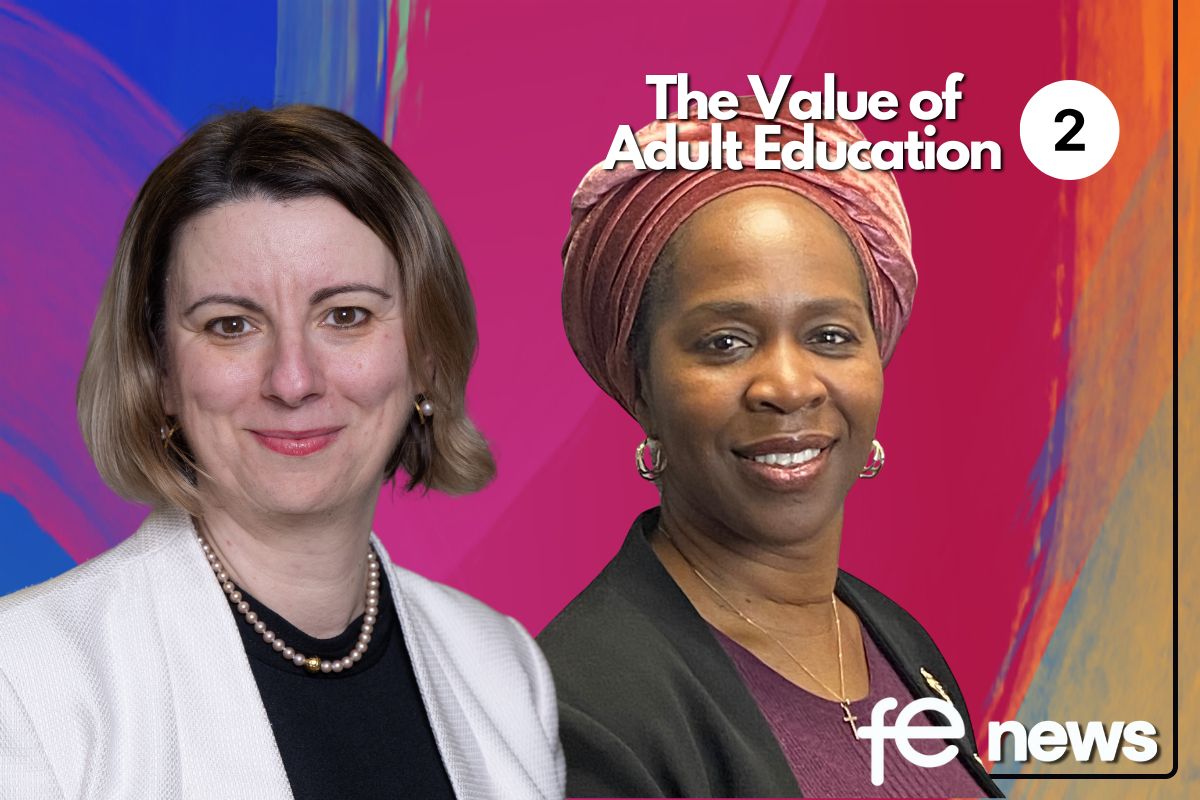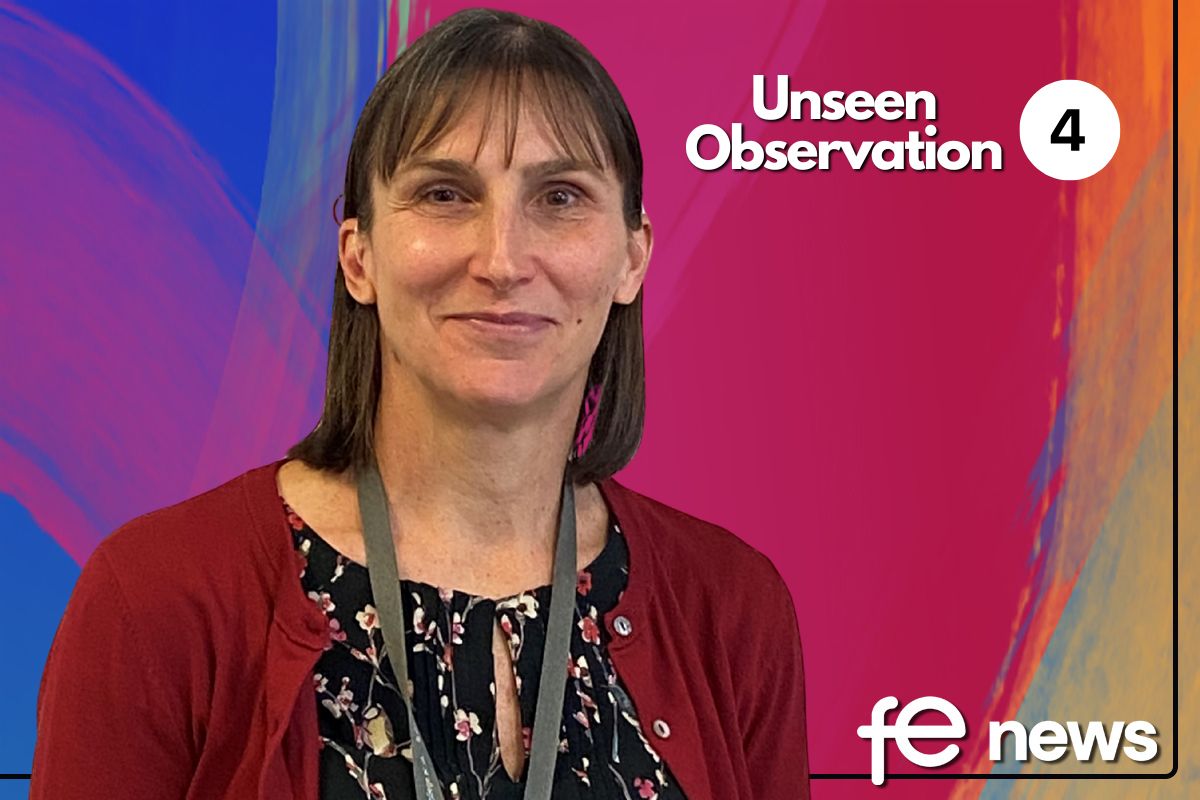AI and its Impact: Opportunities and Challenges for Further Education and Skills

Artificial Intelligence (AI) presents both significant opportunities and challenges for the Further Education (FE) and Skills sector. We need to be prepared for these. Jen Deakin, Course Leader of Graphic Design and Advanced Practitioner at Runshaw College, and Nathan Rogan, Senior Education Advisor at the Education and Training Foundation (ETF), sat down to talk about their ongoing research on this subject, including how AI can support teaching and learning, how it is prompting a re-think of assessment, and some of the key ethical challenges to consider.
Supporting teaching and learning
AI can support educators both in and outside the classroom. Its numerous applications are the subject of Jen’s current research as part of her Technical Teaching Fellowship – a programme, funded in partnership by ETF and the Royal Commission for the Exhibition of 1851, that facilitates the sharing of technical teaching expertise and best practice across the sector.
Jen explains:
“In my research for the Technical Teaching Fellowship, I’ve looked at three areas where AI can support educators. The first is administration, with examples including tasks like tracking attendance and timetabling. The second area is teaching instruction, including things like creating personalised lesson plans and learning paths, and developing different lesson activities. Finally, there is the learning itself, so things like gathering data, monitoring progress, and adapting assessments.”
“I think the biggest focus in the sector at the moment is admin work,” Jen continues, “and that’s what gets a lot of recognition. I don’t think many teachers realise how transformative AI can be in other areas too.”
Whether the focus is cutting down workloads, creative teaching methods, or progress monitoring, AI has the power to transform learners’ experiences and support teachers more effectively.
Nathan shares some examples:
“The ability of AI to help learners with special educational needs and disabilities (SEND) is transformative. For example, learners who are deaf can access AI-enabled live captions while a teacher is speaking. In other areas, such as English for speakers of other languages (ESOL), AI can now provide feedback to learners on their spoken English.”
Providing further examples, Jen says:
“AI has so much potential for resource creation. In the CPD sessions for staff I have been running as part of my Fellowship, many teachers have said that they’ve saved time in creating resources, from booklets to PowerPoints. They realise AI doesn’t create something that’s necessarily ready to go; there’s always the element of checking and editing, and ensuring it aligns to your curriculum. But it’s a really good tool to use as a starting point to build upon.”
AI might also help tackle some of the broader challenges facing the sector, Nathan explains:
“At ETF, we’ve got an ongoing research piece looking at the impact of AI on teacher retention, which considers workload but also AI’s potential for energising teachers. AI can help reimagine teaching by supporting development of new resources and getting you thinking about different ways to do things more widely, with digital technologies such as immersive spaces, or even incorporating virtual reality (VR) and augmented reality (AR). That can be really motivating.”
Professional development opportunities
Effective and targeted CPD on AI ensures educators feel well-equipped to use it. Explaining further about the CPD sessions she is running as part of her Fellowship, Jen says:
“I think it’s helped staff to have in-classroom scenarios where they can try using AI, while getting support. CPD is really important for understanding the ethics around AI, too.”
Nathan agrees:
“That kind of CPD is brilliant because it contributes to a shift in mindset that builds confidence. Some teachers will be really nervous about using AI, while others will already be using it and enjoying it. Most of the time, it’s only when people start using it that they realise how much difference it can make.”
Challenges and ethical considerations
For all its potential benefits, AI is not without its challenges. As well as the research for her Technical Teaching Fellowship, Jen is embarking on another research project as part of the Practitioner Research Programme (PRP), funded by ETF and delivered in partnership with the University of Sunderland’s Centre for Excellence in Teaching Training (SUNCETT).
Jen says:
“For the PRP project, I’m looking at the challenges that AI poses, including issues around plagiarism, and how we need to reimagine assessment as a result. We need to educate learners on ethical AI use and look at new, more creative, assessment methods.”
Nathan agrees:
“There are lots of ethical questions to consider. If a learner uses AI for their assessment, are we assessing their skills, or the work of AI? In that scenario, could we get the learner to explain the rationale of their work and justify it in a presentation or professional discussion? That critical evaluation is going to be important.”
Jen adds:
“As well as plagiarism, FE providers implementing AI have concerns around cyber security and data privacy. There are also issues with equity and access. There’s a lot to think about in terms of cost and infrastructure, and which learners are getting to use and benefit from AI.”
Nathan responds:
“That links closely to the environmental impact of AI in terms of CO2 emissions, too. That should be part of the wider education of learners when we teach them about the ethics surrounding AI, and its broader implications.”
Jen agrees:
“The next stage of my Technical Teaching Fellowship involves producing a teacher handbook and a learner handbook to cover some of these complex topics and help build that understanding.”
As AI begins to play a greater role in FE and Skills, and more broadly across our society and economy, ongoing research into its uses and implications, coupled with education of both learners and educators about the risks and benefits of this technology, will be vital.
By Jen Deakin, Course Leader of Graphic Design and Advanced Practitioner at Runshaw College, and Nathan Rogan, Senior Education Advisor at the Education and Training Foundation.











Responses